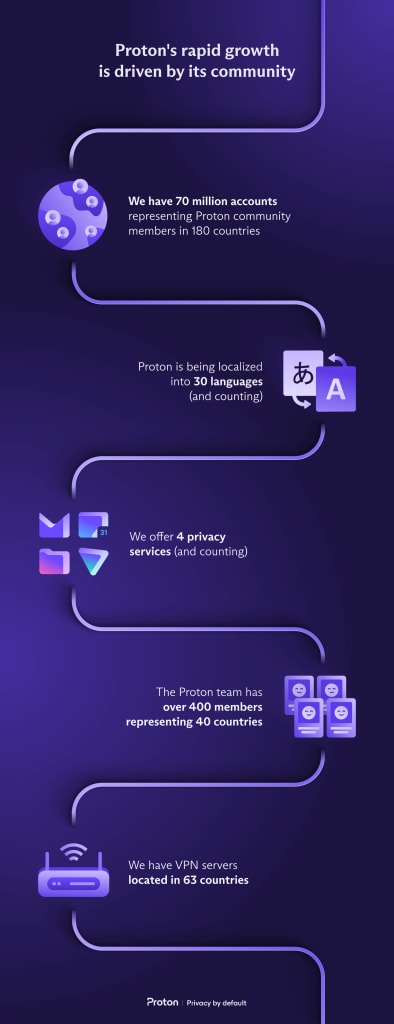In 2010, Mark Zuckerburg dismissed privacy as a social norm that had outlived its usefulness. Fortunately for us all, he was wrong. In the past 12 years, privacy has undergone a resurgence. Citizens are demanding their privacy be respected, policymakers are now passing laws to make digital markets competitive, and even Big Tech is making (often dubious) privacy claims.

It seems now that the internet of the future will be more private, which is saying something. Much of this can be traced back to the Proton community. By embracing privacy-by-default technologies, we’re showing the world that privacy matters and that building an alternative privacy-first internet is sustainable.
Recently, Proton passed 70 million user accounts, demonstrating the widespread interest in privacy-first technologies that are better for users and society. Your support has allowed Proton Mail to become the world’s largest secure email service(new window) and Proton VPN to become the most-used free VPN service(new window) in many countries around the world, particularly in places where freedom of information is needed the most, such as in Russia. Best of all, we have been able to do this while preserving Proton’s original values from our earliest crowdfunding days. Proton continues to be free, open source, neutral, independent, and community first. Your support is essential to protecting Proton’s values as it has allowed us to grow to a team of over 400 that can serve you better while remaining financially sustainable.
Thanks to your support, our work continues. It is not easy to build an alternative internet that puts privacy first and provides an alternative to the offerings provided by Big Tech companies that put profits first. But our journey so far shows that it is not impossible, and we look forward to continuing to build a free, open, and private internet with all of you.





